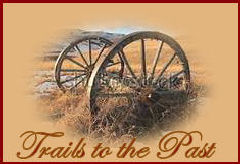|
Progressive Men
Index
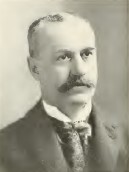 CHARLES E. WALES is president
of the Pioneer Fuel Company, of Minnesota. He is the son
of William W. and Katharine (Bundy) Wales. The father is
a native of North Carolina, and was born in Iredell
County, March 4, 1818. He removed to Greensboro,
Indiana, in 1845, where he engaged in the drug business.
It was at this place, three years later, he married the
mother of the subject of this sketch. In 1851 he
migrated to the North Star state, locating at St.
Anthony, and engaged in the book and stationery
business. This business he conducted successfully until
1884, since which time he has been engaged in missionary
work, much of his time being devoted to missionary
labors among the mountaineers in his native state, this
work being in accordance with a cherished plan of his
early life. While a resident of St. Anthony Mr. Wales
was a member of the Minnesota Territorial Council: was
city clerk for several years, and also served as a
member of the school board for a long time. He was
postmaster at St. Anthony, now East Minneapolis, under
President Lincoln’s administration. and was twice mayor
of the city. He was active in religious work, and was a
member of the Society of Friends. CHARLES E. WALES is president
of the Pioneer Fuel Company, of Minnesota. He is the son
of William W. and Katharine (Bundy) Wales. The father is
a native of North Carolina, and was born in Iredell
County, March 4, 1818. He removed to Greensboro,
Indiana, in 1845, where he engaged in the drug business.
It was at this place, three years later, he married the
mother of the subject of this sketch. In 1851 he
migrated to the North Star state, locating at St.
Anthony, and engaged in the book and stationery
business. This business he conducted successfully until
1884, since which time he has been engaged in missionary
work, much of his time being devoted to missionary
labors among the mountaineers in his native state, this
work being in accordance with a cherished plan of his
early life. While a resident of St. Anthony Mr. Wales
was a member of the Minnesota Territorial Council: was
city clerk for several years, and also served as a
member of the school board for a long time. He was
postmaster at St. Anthony, now East Minneapolis, under
President Lincoln’s administration. and was twice mayor
of the city. He was active in religious work, and was a
member of the Society of Friends.
His
son Charles is a Minnesotan by birth. His primary
education was received in the public schools of East
Minneapolis. The first dollar he ever earned was by
selling newspapers, in this capacity developing early
the habits of economy and the sagacity which he later
exhibited in business life. His first regular employment
was in connection with the first coal business
established in Minneapolis, and ever since that time Mr.
Wales has been actively engaged in the business then
established. Being a believer in specialties in business
as well as in the professions, and also believing that
the field in the coal trade was sufficiently broad, he
concentrated his entire energy to that line of business,
and with such satisfactory results that the company
which he represents stands at the front, not only with
the people throughout the Northwest, but also with the
financial institutions, producers and carriers in the
East. The company is successor to the first coal
business established in Minneapolis, and is very
appropriately named the Pioneer Fuel Company. Ever since
its incorporation Mr. Wales has been its
president. From a local business of a few hundred tons
annually the company’s business has been extended until
now it amounts to mam hundred thousands of tons,
representing millions of dollars. The company has large
shipping wharfs at Duluth, Minnesota, and Gladstone,
Michigan, on which the coal is stocked during the season
of lake navigation for distribution throughout the
Northwest. In connection with these wharves the company
also has large storage yards in the principal
Northwestern cities. The large business of this company
has demanded the outlay of a very large capital, and a
complete organization in the details.
Mr.
Wales has devoted his time so closely to the coal trade,
and has been so fully occupied in this way that he has
avoided responsibilities in other directions.
He has been a life-long Republican, and is a
member of the principal clubs, business organizations
and Masonic bodies. By birth Mr. Wales is a member of
the Society of Friends, but he is also a contributor to
and a frequent attendant at other churches. Mr. Wales is
a widower and has one child, Charles Raymond Wales.
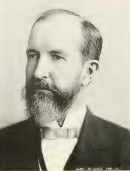 THOMAS BARLOW
WALKER is one of the most honored names in the
city of Minneapolis, where he is known not so much for
his large fortune as for his numerous philanthropies,
public and private. Mr. Walker was born February 1,
1840, at Xenia, Ohio, the second son of Piatt Bayless
and Anstis K. Barlow (Walker). His maternal grandfather
was Hon. Thomas Barlow, of New York. THOMAS BARLOW
WALKER is one of the most honored names in the
city of Minneapolis, where he is known not so much for
his large fortune as for his numerous philanthropies,
public and private. Mr. Walker was born February 1,
1840, at Xenia, Ohio, the second son of Piatt Bayless
and Anstis K. Barlow (Walker). His maternal grandfather
was Hon. Thomas Barlow, of New York.
When the subject of this sketch was
a child his father fitted out a train for the newly
discovered gold fields in California, investing all his
means in that enterprise. While on his way to California
he fell a victim to the cholera scourge. This threw the
lad upon his own resources and the remainder of his
boyhood was a hard struggle with poverty. He had a
natural aptitude for study, however, and notwithstanding
the adversity which he suffered managed to acquire an
excellent education. From his ninth to his sixteenth
year he attended only short terms in the public schools.
At that time his family removed to Berea, Ohio, for the
better educational advantages to he attained at Baldwin
University.
Here he was obliged to devote most
of his time to a clerkship in a country store in order
to support himself, so that he was able to attend the
university only one term of each year. His industry and
capacity were such, however, that he soon outstripped
many of the regular students. At nineteen he was
employed as traveling salesman by Fletcher Hulet,
manufacturer of the Berea grindstones. His travels
brought young Walker to Paris, Illinois, where he became
engaged in the purchase of timber land and in cutting
cross ties for the Terre Haute & St. Louis Railroad.
Unfortunately, after eighteen months of successful work,
he was robbed of nearly all his earnings through the
failure of the railroad company.
He
then returned to Ohio and during the next winter taught
a district school with much success and was subsequently
elected to the assistant professorship of mathematics in
the Wisconsin State University. This position he was
obliged to decline, however, because of arrangements
already made to enter the service of the government
survey. While at McGregor,
Iowa, Mr. Walker chanced to meet J. M. Robinson, a
citizen of the then young but thriving town of
Minneapolis. Mr. Robinson presented
the attractions and prospects of the young city with
such persuasive influence that Mr. Walker determined at
once to settle there, taking passage on the first
steamboat for St. Paul and bringing with him a
consignment of grindstones. There he met an unusually
intelligent and energetic young man employed by the
transportation company as clerk and workman on the
wharf, of whom he has been a firm and trusted friend
ever since. That young man was
James J. Hill. From St. Paul Mr. Walker came
over the only railroad in the state, to Minneapolis, and
within an hour after his arrival entered the service of
George B. Wright, who had a
contract to survey government lands. The surveying
expedition was soon abandoned owing to an Indian
outbreak, and returning to Minneapolis Mr. Walker
devoted the winter to his books having desk in the
office of L. M. Stewart, an attorney.
The
following summer was occupied in examining the lands for
the St. Paul and Pacific Railroad. In the fall he
returned to his Ohio home at Berea, where he was married
December 19, 1863, to Harriet G. the youngest daughter
of Hon. Fletcher Hulet, a lady
whose name is a synonym in Minneapolis for good works.
Returning to Minneapolis, Mr. Walker entered upon an
active career which made him not only a participant in
but the chief promoter of many good works and
enterprises in this city. In the summer of 1864 he ran
the first trial line of the St. Paul and Duluth
Railroad, after which he gave attention for years to the
government survey. In 1868 he began to invest in pine
lands and thus laid the foundation for the large fortune
which he subsequently acquired. His first partners in
the business were L. Butler and Howard W. Mills under
the firm name of Butler, Mills & Walker, the first
two furnishing the capital while Mr.
Walker supplied the labor and experience. This
led also to the extensive manufacture of lumber by the
old firm of Butler, Mills & Walker, afterwards L.
Butler & Co., and later Butler & Walker.
In
later years his most important operations in this regard
have been his large lumber mills at Crookston and Grand
Forks, both of which have been leading factors in the
development of the Northwest. Mr. Walker’s business
career has been characterized by strict integrity and
honorable dealing, but he has not been content to
acquire money simply. At the time of the grasshopper
visitation he not only labored for the immediate relief
of the starving but organized a plan for the raising of
late crops which were of inestimable value.
One
of the most creditable examples of his public spirit and
munificent influence was his organization of the public
library. It was due to his effort that this institution
became a public instead of a private collection and was
made available to the public without even so much as a
deposit for the privilege of using the books. To him
also the city owes more than to anyone else the
possession of the magnificent library building which it
now owns. As would seem right and proper under the
circumstances, Mr. Walker has been continuously
president of the library board since its organization in
1885, to the present time. To him also is due the credit
for the inception and principal support of the School of
Fine Arts, of which Society he is president. Mr.
Walker’s love for art is fully exemplified in the
splendid collection of pictures in his own private
gallery, a collection which has few if any equals in
this country, among private individuals. His home
library is also an evidence of the scholarly tastes and
studious habits of its owner. The Minnesota Academy of
Natural Sciences is another institution much indebted to
him for its past support and present fortunate
situation. Not the least important of the services
rendered by him to Minneapolis is his devotion to the
building up of the material interest of the city in the
line of manufactures, jobbing, etc. It was through this
instrumentality that there was organized the Business
Men’s Union, which has accomplished a great deal for the
material interests of the city.
The
Minneapolis Land and Investment Company is another
institution at the head of which Mr. Walker stands and
upon which he has expended much time and money. This
enterprise is located a short distance West
of the city, where a company organized by Mr. Walker
purchased a large tract of land and established a number
of important industries. This manufacturing center is
directly tributary to Minneapolis and will no doubt in
the course of a few years become a part of the city. The
Flour City National Bank was organized in 1887, and a
year later Mr. Walker was elected, without his knowledge
or consent, to the office of president. He accepted the
duties and responsibilities of his position, against his
protest, and discharged them until January 1, 1894, when
he peremptorily resigned. Three years ago Mr.
Walker also organized a company of which he is president
for the construction of the Central City Market,
probably one of the finest market buildings in the
United States. This necessarily brief sketch but
imperfectly outlines the numerous activities and
beneficent public services of a man who has been
identified very largely with nearly every good work and
public enterprise in the city of Minneapolis. No man was
ever more favored in the marriage relation. Mrs. Walker has been the
inspiration and participant of her husband’s useful and
successful life, and as a leader in every philanthropic
effort has brought honor to his name.
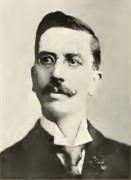 EDMUND ROWE
WARD has been a resident of Minneapolis only since
January y, 1895, but has found it a profitable field for
his business, and has been highly successful in his
capacity as manager of the Phoenix Mutual Life Insurance
Company of Hartford, in Minnesota. Mr. Ward is a native
of Ontario, Canada, and was born in Oxford county, April
10, 1853. the son of Benjamin and Sarah Hill Ward. The
father was a farmer, and Edmund grew up on the farm,
attending the country schools. He left the farm at the
age of twenty-six, and first learned the carpenter and
joiner’s trade, which occupation he followed in Saginaw,
Michigan, until 1889. Part of his time his business was
that of builder and contractor. under the firm name of
Denny & Ward, part of the time as president of the
Co-operative Building Association in Saginaw. It was not
until 1889 he took up the business of life insurance as
a solicitor. Since that time his
advancement has been rapid, as follows: Six months after
beginning the business he was appointed state special
agent for the Union Central Life Insurance Company.
Six months later he was advanced to the position
of district general agent for the same company, under
which contract he handled a large part of the company’s
assets in the way of loans, and made a success of it. On
June 1, 1891, he resigned his position with the Union
Central to accept an offer from the Phoenix Mutual Life
of Hartford, as special traveling agent. The first of
the following January, 1892, he was appointed assistant
manager for the same company in Michigan.
In June of the same year he was appointed
executive special agent for the same company for
Michigan and Ohio. In January, 1895, he was offered his
present position as manager for Minnesota for the
Phoenix Mutual Life and accepted it. His success for
1895. as shown by the insurance commissioner’s report,
was encouraging having been written three
times. As much business as the company had received in
any preceding year, while his business for 1896 exceeds
that of 1895 by more than a hundred percent. EDMUND ROWE
WARD has been a resident of Minneapolis only since
January y, 1895, but has found it a profitable field for
his business, and has been highly successful in his
capacity as manager of the Phoenix Mutual Life Insurance
Company of Hartford, in Minnesota. Mr. Ward is a native
of Ontario, Canada, and was born in Oxford county, April
10, 1853. the son of Benjamin and Sarah Hill Ward. The
father was a farmer, and Edmund grew up on the farm,
attending the country schools. He left the farm at the
age of twenty-six, and first learned the carpenter and
joiner’s trade, which occupation he followed in Saginaw,
Michigan, until 1889. Part of his time his business was
that of builder and contractor. under the firm name of
Denny & Ward, part of the time as president of the
Co-operative Building Association in Saginaw. It was not
until 1889 he took up the business of life insurance as
a solicitor. Since that time his
advancement has been rapid, as follows: Six months after
beginning the business he was appointed state special
agent for the Union Central Life Insurance Company.
Six months later he was advanced to the position
of district general agent for the same company, under
which contract he handled a large part of the company’s
assets in the way of loans, and made a success of it. On
June 1, 1891, he resigned his position with the Union
Central to accept an offer from the Phoenix Mutual Life
of Hartford, as special traveling agent. The first of
the following January, 1892, he was appointed assistant
manager for the same company in Michigan.
In June of the same year he was appointed
executive special agent for the same company for
Michigan and Ohio. In January, 1895, he was offered his
present position as manager for Minnesota for the
Phoenix Mutual Life and accepted it. His success for
1895. as shown by the insurance commissioner’s report,
was encouraging having been written three
times. As much business as the company had received in
any preceding year, while his business for 1896 exceeds
that of 1895 by more than a hundred percent.
Mr. Ward is president of
the Minneapolis Association of Life Underwriters and
vice-president of the National Association of Life
underwriters. He is a member of Minneapolis Lodge, No.
19, A. F. & A. M.; also a
member of the Minneapolis Commercial Club. He was
married in 1872 to Elizabeth A. Dell, of St. Mary’s,
Ontario. They have two children, Robert E. and Maud H.
P.
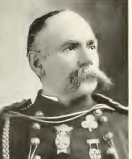 NATHANIEL
FREEMAN WARNER The name which stands at the head of this
sketch is well known in Minneapolis. Major Warner, as he
is generally known, was born April 18, 1848, in New York
city. His father was George Freeman Warner, and his
mother, Julia Frances Wilgus (Warner). On the paternal
side he is a descendant of German stock, and on the
maternal side from a Holland family.
Both his grandfathers were officers in the
American Revolutionary war. NATHANIEL
FREEMAN WARNER The name which stands at the head of this
sketch is well known in Minneapolis. Major Warner, as he
is generally known, was born April 18, 1848, in New York
city. His father was George Freeman Warner, and his
mother, Julia Frances Wilgus (Warner). On the paternal
side he is a descendant of German stock, and on the
maternal side from a Holland family.
Both his grandfathers were officers in the
American Revolutionary war.
Nathaniel came with his father to
Minneapolis in 1856. He was then only eight years old.
He attended the public schools, and afterwards Carleton
college. On leaving school he worked with his father in
the furniture and undertaking business until 1869, when
he crossed the plains with a party exploring a route for
the Northern Pacific railroad. On his return home he
joined a surveying and exploring party which went to the
Upper Mississippi, where he spent considerable time
prospecting and exploring. At this time he brought home
with him some fine specimens of iron ore from what is
now the Mesaba iron range. He also pre-empted a claim in
the same district, which was the first claim taken up
within probably forty miles of Grand Rapids, Minnesota,
and he became well acquainted with the language of the
Indians.
After returning home he engaged in
the undertaking business, and has been in the same
occupation ever since, and located in the same place for
over twenty years. Major Warner possesses an active mind
and contributes liberally to the papers published in the
interest of the funeral directors. He is the president
of the Funeral Directors’ Association of Minnesota,
North and South Dakota, and has been for the past six
years. Mr. Warner is also a member of the board of
managers in the Sons of the American Revolution. He is a
member of the Minneapolis Board of Trade, past
chancellor of the Knights of Pythias, past noble arch of
Druids, past arch of the Druidic Circle, past commander
of the Legion of Honor, also of the Select Knights A. O.
U. W.; also past president of the Veterans’ Association.
He
is also a member of the National Guard of the state and
a charter member of Minneapolis Lodge, No. 44,
Brotherhood of Elks. Mr. Warner organized the first
company of National Guards in the state. This was the
Minneapolis Light Infantry, now Company A National
Guard. This company was formed June 16, 1878. Mr. Warner
has since organized two cavalry companies. The first was
Warner’s Light Dragoons, the second was Troop A,
Minnesota Light Cavalry. He was captain of each, and was
afterwards elected major in command.
Major Warner is also an honorary member of the
First Minnesota Volunteer Association, having been
presented by them with a fine gold corps badge of the
second corps.
His
ancestors settled in Schoharie County, New York, in the
early days, coming there from Hamburg, Germany. The
place where they settled was given the family name, and
is still known as Warnersville. The father of the
subject of this sketch is a retired merchant, a man of
considerable wealth, and is the president of the Diamond
Iron Mine Company, which owns thousands of acres of the
most valuable properties on the Mesaba iron range. His
wife, mother of the subject of this sketch, was the
daughter of Nathaniel Wilgus, of Buffalo, New York. The
Wilgus family came from Holland.
Major Warner is an honorary member
of several military organizations.
He is a man of cultivated literary and artistic
tastes, is a collector of curios, and possesses a very
attractive library. It is rich in rare works, such as
art publications. He has also a fine collection of war
relics and natural history specimens, stuffed animals,
heads and other curios. In 1878 Major Warner
was married to Miss Elizabeth Sullivan, of Minneapolis.
She died in 1883, leaving a daughter, Mary Ellen. In
1887 Mr. Warner was married again to Miss Anna P.
Haskins, of Minneapolis. They have two daughters,
Callie Pearl and Frances Wilgus.
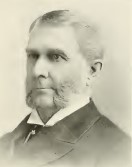 WILLIAM DREW
WASHBURN is a member of the celebrated Washburn family
of Maine, a family whose members have included a
secretary of state, two governors, four members of
congress, a member of the United States senate, a major
general in the army, two foreign ministers, two state
legislators, one surveyor general and one second in
command in the United States navy a family of which
three members, from three different states, were in
congress at the same time. But William Drew does not owe
his claim to distinction to the attainments of his
brothers. WILLIAM DREW
WASHBURN is a member of the celebrated Washburn family
of Maine, a family whose members have included a
secretary of state, two governors, four members of
congress, a member of the United States senate, a major
general in the army, two foreign ministers, two state
legislators, one surveyor general and one second in
command in the United States navy a family of which
three members, from three different states, were in
congress at the same time. But William Drew does not owe
his claim to distinction to the attainments of his
brothers.
He
has made his own record. His birthplace was Livermore,
Androscoggin County, Maine, where he was born January
14, 1831. His early advantages, though limited compared
with those enjoyed by the sons of parents in ordinary
circumstances in these days, were after all favorable to
his development along the line which he afterward
followed. He attended the district school and had for
his teachers Timothy O. Howe, afterwards United States
senator from Wisconsin, and Leonard Swett, afterward a
prominent lawyer in Chicago, and the man who nominated
Lincoln for president in the convention of 1860.
He also attended the high school in the village
and finally prepared for college at Farmington, Maine.
He
entered Bowdoin College in the fall of 1850. Upon the
completion of his college course he began the study of
law in the office of his brother Israel, and from there
he went into the office of Honorable John A.
Peters, in Bangor, present chief justice of the
supreme court of Maine. It was in the winter of 1856 and
1857 that Mr. Washburn determined to go West. He
selected as his location St. Anthony Falls, and reached
that village May 1, 1857. He opened a law office, but
pursued his profession only about two years.
In the meantime he had perceived that there were
better opportunities in other lines of effort, and in
the fall of 1857 he was elected agent of the Minneapolis
Mill Company and began improving the Falls of St.
Anthony on the west side of the river. He served in that
capacity for ten years. About this time he engaged in
the lumbering business and built the Lincoln saw mill on
the falls, and also an extensive mill at Anoka.
He also became interested extensively in the
manufacture of flour, and was the principal owner of
flouring mills which were afterwards incorporated with
the Pillsbury properties and consolidated under the name
of the Pillsbury-Washburn Milling Company. Mr. Washburn
has always been active in the promotion of important
public enterprises, and it was due to his energy and
enterprise that the Minneapolis & St. Louis Railroad
was built, commencing in 1869. Mr.
Washburn was made president of the road, and
retained that position for a number of years. But,
perhaps, the most conspicuous example of his services to
the public in that direction was projecting and
constructing the Minneapolis, St.
Paul & Sault Ste. Marie Railroad, built
originally from Minneapolis to Sault Ste. Marie, where
it connected with the Canadian Pacific, forming an
independent competitive line to New York and New
England, and rendering a service of incalculable benefit
to the whole Northwest by the great reduction in rates
which it secured on all traffic between Minneapolis and
the Atlantic Coast. This road was completed on the 1st
of January, 1888. It has since been
extended westward to a connection with the Canadian
Pacific, near Regina, and constitutes an important link
in the transcontinental Canadian Pacific system.
Mr.
Washburn has always been an active and consistent
Republican, and has served his city and state in various
important positions. He was elected to the Minnesota
state legislature in 185S and again in 1871. President
Lincoln selected him for surveyor general of the
district of Minnesota in 1861. In 1878 he was elected to
Congress, and again in 1880 and in 1882, serving six
consecutive years. He took high rank in that body, and
was regarded as one of its most influential and
successful members. After his retirement from Congress
he devoted his time for a number of years to the
diligent prosecution of his extensive private business,
and it was during this time that the road to the “Soo”
was built, with Mr. Washburn serving as president of the
company, and managing the finances of that important
enterprise. In 1888 he was elected to the United States
senate, and served six years in that capacity. His
previous experience in national legislation, his wide
acquaintance and his grasp of affairs soon secured for
him recognition as one of the half dozen leading members
of that body. He was made chairman of the committee on
the improvement of the Mississippi river, and was thus
enabled to exercise an important influence in the
protection and completion of an important work
undertaken by him when a member of the lower house. It
was while he was a member of the house that he secured
appropriations for the construction of reservoirs at the
head of the Mississippi river, a piece of public work
which has contributed enormously to the improvement of
navigation and the prevention of the disastrous floods
which, for many years, wrought such havoc along the line
of that great river.
Probably no man has served his state
in a public capacity who has more to show for his
efforts in the public behalf than has W. D. Washburn.
Always among the foremost in the promotion of every kind
of enterprise tending to benefit his city and state, the
three most conspicuous monuments to his sagacity and
public spirit are the Minneapolis & St. Louis
Railroad, the Minneapolis, St. Paul & Sault Ste.
Marie Railroad and the reservoirs at the head waters of
the Mississippi. Another enterprise which promises to be
of equal importance with any of these, if not greater,
is the construction of government dams and locks at
Meeker Island, between Minneapolis and St. Paul, by
which the river is to he made navigable for the largest
river boats to the hills of St. Anthony, and by which an
enormous water power will be developed. The inauguration
of this enterprise is due to Senator Washburn, the
appropriations for the initial work having been obtained
by him during his term in the senate. This important
public work is now in progress of construction.
Although well advanced in years, Mr.
Washburn is a well preserved man, and is still in
possession of all his faculties, and in the enjoyment of
the most perfect physical health, with the prospect of
many years of usefulness yet to come.
Mr.
Washburn was married April 19, 1859, to Miss Lizzie
Muzzy, daughter of Hon. Franklin Muzzy, a prominent
citizen of Maine. He has provided for his family of sons
and daughters an elegant home in the city of
Minneapolis. The house is one of the most stately and
imposing in the country, and occupies a commanding site
near the center of the city, where it is the pleasure
and privilege of his hospitable wife to entertain,
liberally and gracefully, their many friends. Mr. and
Mrs. Washburn are members of the Church of the Redeemer,
Universalist, and are liberal in their public and
private charities.
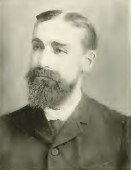 HENDRICK GORDON
WEBSTER traces his ancestry back to Colonel David
Webster one of the early settlers of Plymouth, New
Hampshire. Mr. Webster was born in
Plymouth, New Hampshire, in 1847 he‘s the son of David
C. Webster arid Nancy Gordon (Webster). He is a grandson
of Colonel William Webster of the New Hampshire militia,
and a great-grandson of Colonel David Webster, who
commanded a regiment of New Hampshire troops in the
Continental Army. The document formally discharging
Colonel Webster and his regiment from the Continental
Army at Saratoga, signed by Brigadier General Bailey,
chief of staff for General Gates, is still in the
possession of the family. HENDRICK GORDON
WEBSTER traces his ancestry back to Colonel David
Webster one of the early settlers of Plymouth, New
Hampshire. Mr. Webster was born in
Plymouth, New Hampshire, in 1847 he‘s the son of David
C. Webster arid Nancy Gordon (Webster). He is a grandson
of Colonel William Webster of the New Hampshire militia,
and a great-grandson of Colonel David Webster, who
commanded a regiment of New Hampshire troops in the
Continental Army. The document formally discharging
Colonel Webster and his regiment from the Continental
Army at Saratoga, signed by Brigadier General Bailey,
chief of staff for General Gates, is still in the
possession of the family.
Colonel David Webster was one of the
earlier settlers of New Hampshire about 1765, and the
family resided there for three generations. He was a
farmer and kept a tavern on the site now occupied by the
famous Pemmigewasset House, at Plymouth. The subject of
this sketch obtained his early education in the Nashua,
New Hampshire, high school and in Plymouth Academy. He
then began the study of pharmacy and went into business
as a druggist in Boston. He was engaged in that business
also in Newton and in Fall River, Massachusetts.
As a citizen of Fall River he took an active
interest in local affairs and was made a member of the
Fall River city council. He has always been a Republican
and active in that party. He came to Minnesota in 1880
and embarked in the drug business in this city.
In
1883 a number of the progressive pharmacists of the
state united in the organization of the Minnesota State
Pharmaceutical Association its objects being to promote
the advancement of pharmacy in this state. Mr.
Webster was one of the charter members and was
active with others in securing the passage by the
legislature of 1885 of a law regulating the practice of
pharmacy. This law provided for a board of pharmacy, to
be appointed by the governor, to enforce its provisions.
All persons who were engaged in the drug business at
this time were registered, either as pharmacists or
assistants, and were permitted to continue as such, but
the board was required to examine as to the
qualifications of all who thereafter wished to engage in
the business, and to cause the prosecution of violators
of the law. The board hold quarterly examinations of
candidates for registration. These examinations are both
practical and theoretical and very thorough. Candidates
in order to pass these examinations find it necessary to
pursue some regular course of instruction in pharmacy,
in addition to the practical experience of the drug
store, and so, as the result, a flourishing department
of pharmacy has been added to our State University,
besides two private schools which have been established
since the enactment of the law. and which are well
patronized by students of pharmacy. Thus it will be seen
that good progress has already been made toward securing
for the people of our state the services of more
intelligent and skilled pharmacists.
Mr.
Webster is a member of the Plymouth Congregational
Church. He was married in 1870 to Abbie Richardson
Stevens, in Newton. Massachusetts. He has one son George
Gordon.
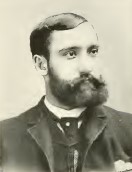 VICTOR JOHN WELCH is an
attorney-at-law, practicing his profession at
Minneapolis. He was born at Madison, Wisconsin, October
8, 1860, the son of William Welch and Jane Petherick
(Welch). William Welch was a
native of New York, but emigrated to Madison, Wisconsin,
in 1850, where he practiced law for thirty years. His
wife was a native of London, her father being an English
barrister of high standing in his profession in that
country. Both William Welch and his wife are now living
in Minneapolis. William Welch became a Republican when
that party was organized, but prior to that had been a
Whig leader, having been chairman of the first Whig
state central committee for Wisconsin. VICTOR JOHN WELCH is an
attorney-at-law, practicing his profession at
Minneapolis. He was born at Madison, Wisconsin, October
8, 1860, the son of William Welch and Jane Petherick
(Welch). William Welch was a
native of New York, but emigrated to Madison, Wisconsin,
in 1850, where he practiced law for thirty years. His
wife was a native of London, her father being an English
barrister of high standing in his profession in that
country. Both William Welch and his wife are now living
in Minneapolis. William Welch became a Republican when
that party was organized, but prior to that had been a
Whig leader, having been chairman of the first Whig
state central committee for Wisconsin.
Victor Welch attended the public
schools at Madison and graduated from the high schools
in that city. He then took the law
course in the law department of the University of
Wisconsin and was graduated in 1880 and was admitted to
the bar the same year. Two years later he came to
Minneapolis and has been engaged here continuously since
that time in the practice of his profession.
At first he was the junior member of the firm of
Welch, Botkin & Welch, consisting of his father, S.
W. Botkin and himself. In 1892 the firm was dissolved
and the new firm of Welch & Welch, father and son,
succeeded it. In April, 1894, this firm was dissolved by
the retirement of William Welch from active practice at
the age of seventy-three years. A new firm was then
organized, consisting of R. L. Penney, V. J. Welch and
M. P. Hayne. Mr. Penney subsequently withdrew and the
firm continued as Welch & Hayne. Recently Henry
Conlin has been admitted to the firm, which is now known
as Welch, Hayne & Conlin, and enjoys a very
lucrative practice. Mr. Welch is esteemed as
one of the most successful among the comparatively young
members of his profession in Minneapolis.
In
1879, while a resident of Madison, Mr. Welch joined
Company C, Fourth Battalion, National Guard of
Wisconsin, and was sergeant of the company during the
lumbermen’s riot, near Eau Claire, where his company was
assigned to service. On coming to Minneapolis he
resigned from the Wisconsin militia, and in July, 1882,
became a member of Company B, First Regiment, Minnesota
National Guard. He was elected first sergeant and then
captain, and held the captaincy until the summer of
1887, when he resigned to become judge advocate general
of the state under Gov. McGill.
He was in command of Company B during the time of
the Stillwater fire when the company was called into
active service. His identification with the militia of
both Wisconsin and Minnesota argues, of course, especial
interest in the National Guard, and he has been
prominently identified with the movement resulting in
legislative action providing armories for the National
Guard at the state expense.
Mr.
Welch is a member of the Commercial Club, takes an
active interest in all public enterprises, and is also
an attendant of the Episcopal Church. He was married
November 10, 1887, at Detroit, Michigan, to Miss
Elizabeth H. Jones. They have one child, Jeannette, aged
four years. Mr. Welch makes a specialty of court
practice, and has been particularly successful in his
appearances before juries. The first dollar he ever
earned was while engaged in the rather monotonous duty
of hauling gravel with his father’s team for highway
repairs.
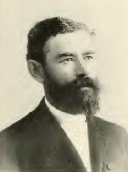 NILS O. WERNER is
president of the Swedish American National Bank at
Minneapolis and one of the substantial and successful
businessmen of that city. He is the son of Ole N. Werner
a Swedish farmer in moderate circumstances and of
Kjerstin Swenson (Werner). His ancestors were farmers in
Sweden for several hundred years.
They belonged to that independent yeomanry who
have to a large degree, since the time of Charles XII.,
controlled the political destiny of that country and
wield the balance of power there today. NILS O. WERNER is
president of the Swedish American National Bank at
Minneapolis and one of the substantial and successful
businessmen of that city. He is the son of Ole N. Werner
a Swedish farmer in moderate circumstances and of
Kjerstin Swenson (Werner). His ancestors were farmers in
Sweden for several hundred years.
They belonged to that independent yeomanry who
have to a large degree, since the time of Charles XII.,
controlled the political destiny of that country and
wield the balance of power there today.
Mr.
Werner was born in Kristianstad, on the nineteenth day
of January, 1848. He was educated at the common schools
until he reached the age of thirteen, when he entered
college at Kristianstad, and graduated at the age of
twenty, in 1868. He was anxious to avail himself of the
superior advantages for business success offered in the
United States, and in 1868 he emigrated to America,
where his parents had already preceded him. He located
at Princeton, Illinois, in October, 1868, and began the
study of law with James S. Eckles, father of the present
comptroller of currency, and remained with him until
September 1870, when he came to Minnesota and located in
Red Wing. He continued his legal studies there with Hon.
W. W. Phelps until 1871, when he was admitted to the
bar. Some idea of his courageous self-reliance may be
inferred from the fact that when he landed in Red Wing
he had but seventy-five cents and did not know a person
in that part of the world. As soon as he was admitted to
the bar he opened an office by himself and had a good
business from the start. Three years later, in 1874. he
was elected judge of probate of Goodhue County, and held
that position for ten years without opposition from
either party. During this time he
was a partner with Hon, O.
M. Hall and continued the practice of his
profession. Mr. Werner was for nine years a member of
the board of education of Red Wing and chairman of the
high school committee. He was also for a number of years
a member of the city council of Red Wing.
In
1888 he assisted in the organization of the
Swedish-American Bank at Minneapolis, becoming its
cashier and manager. This brought him to
Minneapolis to live. In 1894 this
institution was made a national bank and Mr. Werner was
selected its president, which office he now holds. His
political affiliations have always been with the
Republican party. He never held any political office
except that of a local character already described, but
was generally a delegate to state and congressional
conventions. He was a member of the
state central committee from 1886 to 1888. His church
connection is with the Lutheran denomination. He was
married August 17. 1872, to Eva Charlotte Anderson. They
have three children, Carl Gustaf,
Anna Olivia and Nils Olaf, aged respectively,
twenty-two, twenty and twelve years. Mr. Werner has
established a recognition as a careful and conservative
businessman, and enjoys the confidence of his business
associates and of the business community in a high
degree.
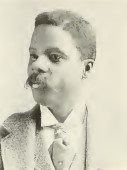 JOHN FRANCIS
WHEATON The story of the life of the subject of this
sketch is an interesting one. Born, with the dark blood
of the negro race flowing in his veins, and confronted
with all the obstacles of race prejudice, John Francis
Wheaton has climbed a rugged path such as few men have
successfully surmounted, and won for himself a record
and a name that would be envied by any man. He was born
at Hagerstown, Washington County, Maryland, May 8, 1866,
the son of Jacob F. and Emily B. Wheaton. JOHN FRANCIS
WHEATON The story of the life of the subject of this
sketch is an interesting one. Born, with the dark blood
of the negro race flowing in his veins, and confronted
with all the obstacles of race prejudice, John Francis
Wheaton has climbed a rugged path such as few men have
successfully surmounted, and won for himself a record
and a name that would be envied by any man. He was born
at Hagerstown, Washington County, Maryland, May 8, 1866,
the son of Jacob F. and Emily B. Wheaton.
He
is able to trace back his ancestry, as far, on the
paternal side, to his two great-grandfathers, and his
great-grandfather on the maternal side. The father of
his paternal grandmother was an Englishman who settled
in Virginia as a planter. His name was Thomas
Buckingham. The father of his paternal grandfather was
also a Virginia planter whose Afro-American son was his
slave. Upon the death of this planter, he liberated his
dark-hued son, at the age of twenty-four years. It was
from this planter that Wheaton’s family took its
name. His maternal
great-grandparents were both slaves of the Wingert
family in Maryland.
He
attended the public schools of his native town until his
thirteenth year, and then for two years a school in
Ohio. Later he took a course of study in Storer College,
at Harper’s Ferry, West Virginia, graduating from the
State Normal Department in 1882, as valedictorian of his
class. The funds which enabled him to receive an
education were earned by him shining shoes, milking
cows, etc. The laws forbidding
any one to teach school under nineteen years of age were
finally set aside by young Wheaton being able to pass a
rigid test examination. He taught school for a few
terms, but entered into politics before he was nineteen
years of age, exhibiting considerable ability as a stump
speaker. When but twenty-one years of age his name was
presented to the Republican county convention of
Washington county, Maryland, for nomination as candidate
for the state legislature, but he withdrew his name
after receiving a flattering complimentary vote of one
hundred and twenty out of a necessary one hundred and
fifty votes. In 1887, 1889 and 1891 he served as a
delegate to the state convention, and in 1888 attended
the Republican national convention at Chicago as an
alternate delegate. During a large share of this time he
was teaching school at Williamsport and studying law in
the office of Hon. Albert A. Small, a prominent lawyer
of Maryland. In 1888 he took a course in the Dixon
Business College, at Dixon, Illinois, and during the
campaign of that year was engaged as a stump speaker by
the Republican national committee to stump Illinois,
Indiana and Ohio.
In
February, 1889, he was elected temporary chairman of the
state Republican convention at Baltimore, and
successfully quieted the warring factions. He was a
candidate for the superintendency of the house document
room in Washington, but was turned down after the place
had been promised him. He was, however, given a
clerkship in the same department, which he held during
the Fifty-first congress. While in Washington he
attended the law department of Howard University
graduating in May, 1892. On his return home he made a
bitter fight for admission to the bar, and was finally
allowed to take an examination, which he passed
successfully. It was only after ten months of persistent
effort, however, that Judge R. H.
Alvey, now chief justice of the supreme court of
the District of Columbia, and a member of the Venezuelan
commission admitted him to practice.
Pie was the first colored man admitted to
practice outside the city of Baltimore, and the fourth
in the state. In 1892 the colored Republicans of his
state elected him as a delegate-at large to represent
them in the Republican national convention in
Minneapolis, but his credentials were not accepted.
Tiring of his continual struggle
against the disadvantages imposed upon men of his color,
Mr. Wheaton moved to Minneapolis, May I, 1893. That he
might be admitted to practice before the Minnesota
courts he took a two years’ law course at the Minnesota
State University in one year, and was elected orator of
his class. He took an active part in the campaign of
1894 and entered the lists as a candidate for the office
of reading clerk in the lower house of the legislature.
After a hard contest he was beaten by one ballot, but
subsequently was elected as assistant file and reading
clerk. In 1895 he was appointed deputy clerk in the
municipal court of Minneapolis, which position he now
holds. He was elected by acclamation as alternate
delegate from the Fifth Minnesota congressional district
to the Republican national convention at St. Louis in
1896, having the distinction of being the first colored
man to represent Minnesota in a national
convention. Mr. Wheaton is a
member of the Masonic fraternity. He was married June 6,
1889, to Miss Ella Chambers, a graduate of Wilberforce
University, Ohio. They have two children, Layton J. and
Frank P.
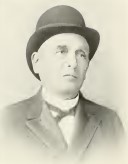 JOSEPH P. WILSON It
is given to comparatively few men to see great cities
grow to metropolitan proportions on the site of their
frontier homes. One of the men who pioneered in
Minnesota, who settled at the site of Minneapolis when
there were more Indians in the vicinity than white men,
and who has lived to see the city and state develop to
magnificent commercial and social proportions, is Joseph
P. Wilson. Like so many
of Minnesota’s pioneers, Mr. Wilson is a native of
Maine. JOSEPH P. WILSON It
is given to comparatively few men to see great cities
grow to metropolitan proportions on the site of their
frontier homes. One of the men who pioneered in
Minnesota, who settled at the site of Minneapolis when
there were more Indians in the vicinity than white men,
and who has lived to see the city and state develop to
magnificent commercial and social proportions, is Joseph
P. Wilson. Like so many
of Minnesota’s pioneers, Mr. Wilson is a native of
Maine.
He
was born at Columbia Falls, March 16, 1823. In 1833 the
family moved to New York City, where he spent his youth.
At one time he was in the employ of Horace Greeley, and
later, for two years, was in the law office of Silas M.
Stillwell. When twenty-two years of age, in 1845, Mr.
Wilson came West, settling first in Illinois, where he
was for a time in the law office of P. F. Fridley of
Geneva. The next year he was admitted to the bar, but he
has never practiced his profession. In 1847 Mr.
Wilson was engaged in the purchase of government
land, in Northern Illinois, for Eastern
capitalists. It was during his
service in the army in Mexico that he first met Colonel
John H. Stevens, the
Minneapolis pioneer. After the war with Mexico Mr.
Wilson took a trip up the Mississippi River, visiting
the towns of Galena, Prairie du Chien and Stillwater,
but he returned to Oswego, Illinois, where he engaged in
business in 1849. But he had his eye on Minnesota, and
made his way to the territory and settled at St.
Anthony Falls on April 19, 1850.
Inhabitants were then very few, and
the Indians of the Sioux Nation occupied the land west
of the river. St. Anthony was the
last settlement between the East and the Pacific Ocean.
The place was entirely without means of communication
with the world except by means of steamers on the
Mississippi, and all groceries and other supplies had to
be shipped from Galena or St. Louis.
Mr. Wilson remembers well sending four hundred
miles to Galena for a cooking stove and a barrel of
flour. A Minneapolis man sending to Galena for flour!
And this was only forty-six years ago.
Upon coming to Minneapolis Mr. Wilson engaged in
a mercantile business and continued in that line for
some years.
Later on he engaged in the real
estate business, which he has followed ever since. In
1851 he purchased from the government a tract of land in
what is now Northeast Minneapolis, and also a tract at
St. Anthony Park, paying one dollar and a quarter per
acre. He was one of the
original proprietors of the town site of St. Cloud, in
1855 and in 1882 he laid out East St. Cloud, improving
the place and making it what it is. He still has large
interests there. From 1863 to 1871 he was a government
contractor for transportation of army stores and for the
furnishing of grain and other army supplies to the
military posts on the frontier. Ever since his arrival
in Minnesota Mr. Wilson has been identified with the
public affairs of the state and his own locality. He was
a county commissioner of Ramsey County from 1852 to
1855, a member of the constitutional convention in 1858,
and a member of the state senate in 1864 and 1865.
Since that time he has been a delegate to most of
the Democratic state and congressional conventions.
It is almost unnecessary to say after this review
of Mr. Wilson’s life that he is a self-made man—reliant,
energetic, and having the confidence and respect of all
who know him.
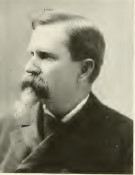 PHILIP BICKERTON
WINSTON Mr. Winston is the eldest son of William Overton
Winston and Sarah Anne Gregory (Winston), both of whom
were natives of Virginia and descendants of the early
colonists who came over from England in the Seventeenth
century. His great-grandfather was a patriot in the War
of the Revolution, while his grandfather was a soldier
in the War of 1812. William O.
Winston held the office of County Clerk of
Hanover County, Virginia, which his father had also held
before him, for many years. The Gregory family were also
prominent in the history of the state of Virginia. PHILIP BICKERTON
WINSTON Mr. Winston is the eldest son of William Overton
Winston and Sarah Anne Gregory (Winston), both of whom
were natives of Virginia and descendants of the early
colonists who came over from England in the Seventeenth
century. His great-grandfather was a patriot in the War
of the Revolution, while his grandfather was a soldier
in the War of 1812. William O.
Winston held the office of County Clerk of
Hanover County, Virginia, which his father had also held
before him, for many years. The Gregory family were also
prominent in the history of the state of Virginia.
Philip B. was born at the family
home, known as Courtland (which he now owns), near
Hanover Court House, Hanover County, Virginia, August
12, 1845. His early education he received at home under
private tutelage, up to his sixteenth year. He then
attended an academy in Caroline County for one year. The
death of his father occurred at this time, and Philip
returned home and assisted on the farm until the fall of
1862, when he enlisted as a private in the Confederate
army, in Company E, Fifth Virginia Cavalry, though at
this time only a lad of seventeen. After about a year of
hard service he was promoted to the rank of first
lieutenant and assigned to the staff of General Thomas
L. Rosser, who commanded a division under General Lee,
as an aide-de-camp. He served in this last until the
last gun was fired at Appomattox, having experienced a
hard service and participated in a great many
battles. The list of
engagements in which he fought is as follows: Kelley’s
Ford, Grand Station, Aldee, Middlesborough, Hagerstown,
Carlisle, Pennsylvania, Gettysburg, cavalry engagement
near Menassas, Mine Run, Sauxter’s Station, Wilderness,
Spottsylvania Court House, Tryvillian’s Station, Haw’s
Shop, Hanover Court House, Ream’s Station, Mt. Jackson,
Back Road, Tom’s Brook, Winchester (the latter four in
the valley of Virginia); Amelia Springs, Bossoux Cross
Roads, Five Forks, High Bridge, Appomattox.
After the close of the war
Mr.
Winston returned to his old homestead and engaged in
farming. He remained there until May, 1872, when he
started West, arriving in Minneapolis with but little
money in his possession. He secured a position in the
engineering department of the Northern Pacific Railroad,
in whose employment he remained for a little over a
year. During the winters of 1873, 1874 and 1875 he
engaged in government surveying in northern Minnesota
with his brother, F. G. Winston. In the spring of the
latter year he returned to Minneapolis and associated
with his brother, V. G. Winston, under the firm name of
Winston Brothers, for the business of railroad
contracting. The next year W. O. Winston, another
brother, was taken into partnership. The firm of Winston
Brothers started out in a small way, but in a short time
was able to establish quite a reputation, and is now one
of the largest railroad contracting firms in the
country. One thousand miles of track for the Northern
Pacific Railroad was the first large contract received
by Them, most of the track and bridge work of this road,
west of Bismarck, was built by this firm. The Winston
Brothers have also completed a great many other large
contracts for railroad corporations in the Northwest.
Mr. Winston has always been a Democrat. He was nominated
for mayor of Minneapolis in 1888, but was defeated,
though he ran 3,000 votes ahead of his ticket. Two years
later he was renominated by acclamation and was elected
by a plurality of over 6,000. The business interests of
the city warmly supported him, and his administration
from a business standpoint was a commendable one. He
served in the legislature during the session of 1893,
and was renominated in 1894, but failed of election.
Since that time Mr. Winston has withdrawn from an active
participation in politics, although he attended the last
Democratic National Convention in Chicago as a
delegate-at large, and was chairman of the Minnesota
delegation. In 1892 he was also chairman of the
Minnesota delegation to the National Convention in St.
Louis.
Mr.
Winston has extensive business interests in this city
aside from that of the firm of Winston Brothers. He is a
stockholder in the Security Bank, the Syndicate Building
Company, and a stockholder and director in the
Minneapolis Trust Company, all of Minneapolis.
He is a member of the Minneapolis Club and the
Commercial Club: the Minnesota Club, of St. Paul, and
the West Moreland Club, of Richmond, Virginia. Each year
he enjoys a few months on the old homestead in Virginia,
on which he has made extensive improvements. On March
30, 1876, Mr. Winston was married to Katharine D.
Stevens, a daughter of Colonel John A. Stevens, the
first pioneer of what is now is the city of Minneapolis.
Mrs. Winston is prominent in all church and charitable
work, and represented this state at the World’s Fair as
an alternate on the board of lady managers. Mr. and Mrs.
Winston have two children, now nearly
grown.
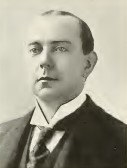 FRANC ROSWELL
EMERSON WOODWARD, whose sensational experiences in
newspaper work, and in connection with the Cuban
insurrection have given him no little prominence, is the
son of Jasper M. Woodward, who was for many years
engaged as a contractor in the city of Minneapolis.
Mr. Woodward was a member of Company H, Sixth
Minnesota Volunteer Infantry. He died in 1895. His
family included a number of men of military reputation,
and several distinguished as surgeons and
educators. One Dr. Woodward was a
noted surgeon in the War of the Revolution. Another was
the physician who attended President Garfield during his
last illness. A brother Prof. C. M. Woodward, was a
distinguished educator in St. Louis, and was the founder
of the manual training system in the United States. Mr.
Woodward’s wife, Mrs. Abby Ann Palmer Woodward, who
survives him, is descended from Puritan stock.
Her family is connected with the Campbells of
Scotland, and of the same branch as the Duke of Argyle. FRANC ROSWELL
EMERSON WOODWARD, whose sensational experiences in
newspaper work, and in connection with the Cuban
insurrection have given him no little prominence, is the
son of Jasper M. Woodward, who was for many years
engaged as a contractor in the city of Minneapolis.
Mr. Woodward was a member of Company H, Sixth
Minnesota Volunteer Infantry. He died in 1895. His
family included a number of men of military reputation,
and several distinguished as surgeons and
educators. One Dr. Woodward was a
noted surgeon in the War of the Revolution. Another was
the physician who attended President Garfield during his
last illness. A brother Prof. C. M. Woodward, was a
distinguished educator in St. Louis, and was the founder
of the manual training system in the United States. Mr.
Woodward’s wife, Mrs. Abby Ann Palmer Woodward, who
survives him, is descended from Puritan stock.
Her family is connected with the Campbells of
Scotland, and of the same branch as the Duke of Argyle.
Franc Woodward was born on September
6, 1868, on a Minnesota farm near the village of
Hopkins. His early life was attended with many
privations. He attended school in Minneapolis, and for
about six years his daily routine consisted of carrying
newspapers in the morning, attending school during the
forenoon, collecting for newspapers in the afternoon,
and lighting the street lamps in the early evening.
Saturdays he substituted for school, work for a
weekly paper. While growing up amid these varied
surroundings, he wrote for several small publications,
and won three prizes for juvenile stories. At seventeen
he left school, but continued his studies and reading as
he found time.
The
year 1886 found him in Duluth, employed on the “Duluth
Herald.” Subsequently he was offered a position on the
“Duluth Tribune,” and later occupied an all a round
editorial post on the “Minneapolis Evening Star.” An
expected advance in salary not being forthcoming, young
Woodward went to St. Louis, where, as reporter for the
“St. Louis Post Dispatch,” he created a stir in army
circles by exposing the treatment of soldiers by
officers at the Jefferson Barracks, Missouri. To secure
the information necessary for this expose, Woodward
enlisted and served for three months in the cavalry. His
exposure was the cause of the three years’ enlistment
law, which went into effect after President Harrison had
ordered a court of inquiry into the charges preferred.
Other radical reforms followed.
After this Mr. Woodward engaged in
newspaper work on the “Herald” in Chicago, the “Fargo
Argus,” and several papers in Minneapolis and St. Paul,
and finally on the “New York World.” While on the
“World” he made an investigation of the civil prison, in
Brooklyn. In May, 1895, he was sent to Cuba as war
correspondent. He served on the staff of General Maceo,
was taken prisoner by the Spaniards, sentenced to be
executed, but escaped and joined Maceo. He was again
taken prisoner, but finally escaped from the interior of
the island after being wounded four times, and boarded a
British steamer. He returned to New York, and afterwards
to Minneapolis, where he accepted a position with S. E.
Olson and acted as manager of the advertising
department. Mr. Woodward has written
several books. His first was a novel, written when he
was quite young. In later years Mr.
Woodward collected all copies of this book which he
could find and destroyed them. “Dogs of War” was a
description of his army experiences at St. Louis. “El
Diablo Americano” was a story of his adventures in Cuba,
published in New York. “With Maceo in Cuba,” a later
book of his experiences in Cuba, was published in
Minneapolis. Mr. Woodward has always been connected with
the press clubs of the cities in which he has been
engaged in newspaper work. Among his activities are clay
modeling and fencing. He is an expert rifle and pistol
shot.
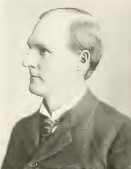 JAMES THOMAS WYMAN, may be
described as one of the makers of Minneapolis. No one is
more active in every good work for the advancement of
the interests of this city than he.
Like many of the leading citizens of Minneapolis,
Mr. Wyman is a native of Maine. He was born at
Millbridge, October 15th, 1849, the son of John Wyman, a
dealer in building materials and a merchant who though
not committed wealthy, was in comfortable financial
circumstances. Mr. Wyman is of old
Puritan stock, his ancestry having come from England
about 1640, and settled in Woburn, Massachusetts. JAMES THOMAS WYMAN, may be
described as one of the makers of Minneapolis. No one is
more active in every good work for the advancement of
the interests of this city than he.
Like many of the leading citizens of Minneapolis,
Mr. Wyman is a native of Maine. He was born at
Millbridge, October 15th, 1849, the son of John Wyman, a
dealer in building materials and a merchant who though
not committed wealthy, was in comfortable financial
circumstances. Mr. Wyman is of old
Puritan stock, his ancestry having come from England
about 1640, and settled in Woburn, Massachusetts.
He
attended the public schools of his native town, but
enjoyed no further educational advantages until he came
to Minnesota in 1868 when he located at Northfield and
attended Carleton College for one year. In 1869 he went
into business in that town with his brother, operating a
sash, door and blind factory and sawmill. This
establishment was burned March 12th, 1871, without
insurance. Mr. Wyman had already established such a
reputation for integrity and straight-forward business
methods that he was able to borrow money to pay off his
debts.
He
then came to Minneapolis and was made superintendent of
a sash, door and blind factory, operated by Jothan G.
Smith and L. D. Parker, where he
demonstrated the possession of such business capacity
that in 1874 he became a partner, under the firm name of
Smith, Parker & Co. This same business is now
conducted under the firm name of Smith & Wyman, the
partners being H. Alden Smith and James T.
Wyman. From this it appears that Mr. Wyman has
been a manufacturer in Minneapolis for upwards of
twenty-five years, and a very extensive employer of
labor, having on his pay rolls at different times from
two hundred to two hundred and fifty men, and during all
that time the most cordial and friendly relations have
been maintained between employees and employer.
Mr.
Wyman helped to organize the Metropolitan Bank in 1889,
and has been the president of that institution since
1890. He was president of the Board of Trade in 1888 and
1889 and was one of the organizers of the Business Union
in 1889 and a member of its board of directors. He is
president of the Clearing House Association of the
associated banks of Minneapolis, and ail active promoter
of every enterprise for the benefit of the city.
Politically he is a Republican, and
was honored by his party with election to the lower
house of the legislature in 1893, and to the senate in
1895, both of which bodies he has been recognized as a
leader. He was the author of the Minnesota factory
inspection act, of the university tax act, of the new
Minnesota banking law, and many other important
measures. He is a member of the
Minneapolis Club, of the Commercial Club, and also
vice-president of the Associated Charities, to which
splendid organization he has given the benefit of his
business experience and wise counsel.
He
is a member of the Hennepin Avenue M. E. church, which
counts him one of its most active and faithful
supporters, and he serves the church as one of its
trustees. He is also a trustee of Hamline University,
the leading Methodist educational institution in the
Northwest. Mr. Wyman, in spite of all his numerous
interests and activities, is a man who is well known in
Minneapolis societies, always in demand and accounted
one of the most pleasing after dinner speakers of the
state. He is now in his prime and enjoys the esteem and
confidence of his fellow citizens in a remarkable
degree, he was married September 3d, 1873, to Rosa
Lamberson, daughter of a Methodist Episcopal clergyman
at Northfield. They have seven children, Roy L., Guy A.,
Grace Alice, James C., Maude E., Earle F., and
Ruth.
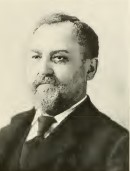 OLIVER CROMWELL
WYMAN The employment of our energies upon the work at
hand will almost invariably bring its reward to those
using such methods in. all the pursuits of life. The
success achieved by Mr. Wyman, who is the senior member
of the wholesale dry goods house of Wyman, Partridge
& Co., is but another evidence of what perseverance
in business will accomplish. Oliver Cromwell Wyman was
born at Anderson, Indiana, January, 1837. His father,
Henry Wyman, a native of New York, was prominently
identified with the early history of the state of
Indiana, and also with that of Michigan. His death,
occurring in the latter state in 1891, at the advanced
age of eighty-nine years, closed a successful
professional career of more than fifty years in the
practice of medicine. Mr. Wyman’s mother’s maiden name
was Prudence Berry. She died but a few months after her
son’s birth: her parents were pioneer settlers in the
Hoosier state. OLIVER CROMWELL
WYMAN The employment of our energies upon the work at
hand will almost invariably bring its reward to those
using such methods in. all the pursuits of life. The
success achieved by Mr. Wyman, who is the senior member
of the wholesale dry goods house of Wyman, Partridge
& Co., is but another evidence of what perseverance
in business will accomplish. Oliver Cromwell Wyman was
born at Anderson, Indiana, January, 1837. His father,
Henry Wyman, a native of New York, was prominently
identified with the early history of the state of
Indiana, and also with that of Michigan. His death,
occurring in the latter state in 1891, at the advanced
age of eighty-nine years, closed a successful
professional career of more than fifty years in the
practice of medicine. Mr. Wyman’s mother’s maiden name
was Prudence Berry. She died but a few months after her
son’s birth: her parents were pioneer settlers in the
Hoosier state.
When Mr. Wyman was but seven years
old he removed to the state of Iowa with his maternal
grandmother. With the advantage of but a common school
education, Mr. Wyman, at the early age of fourteen
years, began his active business career at Marion, Iowa,
where he remained in business until 1874, when he came
to Minnesota, locating in Minneapolis.
He at once engaged in active business,
establishing the wholesale dry goods house of Wyman
& Mullin. Mr. Mullin having been a former business
partner at Marion, Iowa. The firm’s business place was
220 Hennepin avenue. In 1890 Mr.
Mullin withdrew from the partnership, and
Mr. George Henry
Partridge, who had been associated with the credit
department of the house for some years, became the
junior partner, under the name of Wyman, Partridge &
Co., Samuel D. Coykendall of Rondout,
New York, remaining the special partner. The firm
continues the same at the present time. The business of
this house has gradually increased since its beginning
here, and it is now one of the largest wholesale dry
goods houses in the West. The business is now located in
their own building, corner of First avenue north and
Fourth street, a very desirable locality for the
convenience of the wholesale trade.
It must be gratifying to any man to realize that
his early business methods, so judiciously followed,
have achieved good results.
Mr.
Wyman’s political affiliations have been with the
Democratic party. He does not, however, take any active
part in party politics. In 1858 he was married at
Loudon, Iowa, to Charlotte E. Mullin, who died October
1, 1880. His second marriage was in 1889, to Bella M.
Ristine of Cedar Rapids, Iowa. Mr. Wyman has four
children living.
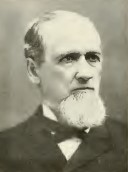 AUSTIN HILL
YOUNG, served on the judicial bench of Hennepin County
for more than eighteen years. He was born at Fredonia,
Chautauqua County, New York, December 8, 1830, the son
of Abijah Young and Rachel Hill Young. His parents were
natives of Vermont. His father was a
cabinet maker by occupation, a man in moderate financial
circumstances, but a great reader and of considerable
literary attainments. His wife was a woman
of strong personal character, an earnest Christian, who
impressed herself deeply upon her children. Soon after
their marriage in Rutland County, Vermont, they removed
to Fredonia, New York, where they resided until Abijah
Young’s death in 1837. Mrs. Young believed
that the new West would afford more favorable conditions
under which to rear her family of five boys, and removed
to Dupage County, Illinois. Two years later she was
married again and removed with her family to Cook
County, where the subject of this sketch grew up on an
Illinois farm. AUSTIN HILL
YOUNG, served on the judicial bench of Hennepin County
for more than eighteen years. He was born at Fredonia,
Chautauqua County, New York, December 8, 1830, the son
of Abijah Young and Rachel Hill Young. His parents were
natives of Vermont. His father was a
cabinet maker by occupation, a man in moderate financial
circumstances, but a great reader and of considerable
literary attainments. His wife was a woman
of strong personal character, an earnest Christian, who
impressed herself deeply upon her children. Soon after
their marriage in Rutland County, Vermont, they removed
to Fredonia, New York, where they resided until Abijah
Young’s death in 1837. Mrs. Young believed
that the new West would afford more favorable conditions
under which to rear her family of five boys, and removed
to Dupage County, Illinois. Two years later she was
married again and removed with her family to Cook
County, where the subject of this sketch grew up on an
Illinois farm.
Austin H. attended the common
schools of the neighborhood in winter, working on the
farm in summer. At the age of seventeen he took a course
at Waukegan Academy, Waukegan, Illinois, then one of the
best schools of its kind in the West. This, with the
experience of six terms of school teaching, comprised
his early educational advantages.
In
1853, at the age of twenty-three years, he began the
study of law in the office of Ferry & Clark, of
Waukegan. In 1854 he removed to Prescott, Wisconsin, and
for a time was engaged in mercantile business. He was
also elected clerk of the circuit court and held that
office for several years. In 1860 he began the practice
of law, forming a partnership with M. H. Fitch. Soon
afterward he was elected district attorney for his
county, which office he held till the fall of 1863, when
he was elected to the State Senate. In 1866 Mr. Young
removed to Minneapolis and began the practice of his
profession here in partnership with W. D. Webb. In the
spring of 1870 he formed a partnership with Thomas
Lowry, which continued until June 1, 1872 when he was
appointed judge of the court of common pleas. This court
had recently been established by the legislature, and in
November of the same year Judge Young was elected for a
term of five years. In 1877 the Legislature united the
district court and the court of common pleas and Judge
Young was transferred to the district bench and was
continued in that office until 1890, when he resumed the
practice of law in Minneapolis, forming a partnership
with Frank M. Nye. That firm has since
been dissolved, and Judge Young is now in partnership
with Daniel Fish. His continuance on the
bench for eighteen years is in itself sufficient
evidence of his ability, integrity and fidelity to his
official duties. He has long occupied a prominent and
influential position in Minneapolis, where he is
esteemed alike for his professional attainments and his
high character. In politics he is a Republican, but on
account of his official position has not taken a very
active part in party affairs. He is a member of Plymouth
Congregational Church and one of the officers of that
society.
Judge Young was married in 1854 to
Miss Martha Martin at Waukegan, Illinois. She died in
1868. He was married again, and again lost his wife by
death. His present wife was
Miss Leonora Martin, daughter of Milton Martin, of
Williamstown, Vermont, to whom he was married April 9,
1872. He has had five
children, offspring of his first wife, two of whom,
Edgar A., and Alice M. are still living.
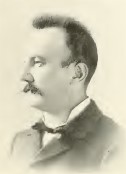 HERMAN EMIL ZOCH is a familiar
name to all lovers of music in Minneapolis. Mr. Zoch is
a native of Prussia, the son of Carl Friedrich Zoch and
Augusta Kunau Zoch. Carl Friedrich was director of the
estates of the Polish Count Dzieduszicki. His
grandfather Zoch owned property in Silesia, was an
officer in the army, and distinguished himself in the
war of 1813 against the French usurper. Herman Emil was
born in Theerkeute, an estate of Count Dzieduszicki, in
the province of Posen, Prussia, April 16, 1857. He was
provided as a child with a private tutor at home, but
afterwards entered the state gymnasium in Halle, Saxony,
and graduated at the Thomas gymnasium at Leipsic, where
he finished the classical course of study. HERMAN EMIL ZOCH is a familiar
name to all lovers of music in Minneapolis. Mr. Zoch is
a native of Prussia, the son of Carl Friedrich Zoch and
Augusta Kunau Zoch. Carl Friedrich was director of the
estates of the Polish Count Dzieduszicki. His
grandfather Zoch owned property in Silesia, was an
officer in the army, and distinguished himself in the
war of 1813 against the French usurper. Herman Emil was
born in Theerkeute, an estate of Count Dzieduszicki, in
the province of Posen, Prussia, April 16, 1857. He was
provided as a child with a private tutor at home, but
afterwards entered the state gymnasium in Halle, Saxony,
and graduated at the Thomas gymnasium at Leipsic, where
he finished the classical course of study.
Mr.
Zoch had early developed promising musical talent, and
was afforded opportunity for developing it. He was sent
to the Royal Conservatory of Music at Leipsic, where at
the end of the third year he graduated with students who
had been there five or six years, and took the first
prize in piano playing. His instructors in piano were
Carl Reinecke, Jadassohn and Coccius. the first two
being his teachers in counterpoint and composition.
After graduating from the Royal Conservatory Mr.
Zoch spent several months in Paris hearing the great
players there, studying concert programs and making the
most of the opportunities there afforded for advancement
in his art. He then went to
Munich, where he lived two years, forming acquaintance
with the best musicians of that city, foremost among
them being Joseph Rheinberger, the great composer, for
whom Mr. Zoch performed Rheinberger’s piano concerto,
op. 94, which he subsequently introduced for the first
time at a concert at Berlin, with orchestral
accompaniment. At this time Mr. Zoch
had come to be recognized as an artist of great merit,
and he gave a series of successful piano recitals in
Leipsic, Berlin, Munich, Vienna, Gotha and other large
music centers of Germany.
In
1883 he decided to come to America, and in 1884 he
settled in Minneapolis as a teacher of piano.
Since 1889 he has made three concert tours, and
has given piano recitals in Boston, Philadelphia,
Cleveland, Syracuse, St. Louis, Indianapolis,
Louisville, Cincinnati, and played at the Music
Teachers’ National Convention in 1892. He is thoroughly
devoted to his art and is recognized as a performer of
great merit. His programs denote the possession of a
phenomenal repertoire, Names like these are very common:
Beethoven (Sonatas op. 53, 57, 81, 111, etc.)., Schuman,
Chopin, Brahms, Liszt, Rheinberger, St. Saens,
Moszkouski, Schubert, Mendelssohn, Mozart, Bach,
Rubenstein, Haendel, Henselt, Joseffy, Jensen, Raf¥,
Taussig, Scarletti, Heller, Wagner, Reinecke and many
others. He has never married, and is so devoted to his
art that he has never cared to join himself to any
orders or societies.
The information
on Trails to the Past © Copyright
may be used in personal family history research, with
source citation. The pages in entirety may not be
duplicated for publication in any fashion without the
permission of the owner. Commercial use of any material
on this site is not permitted. Please respect the
wishes of those who have contributed their time and
efforts to make this free site possible.~Thank
you! |
